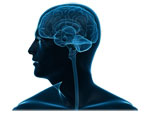Tagged with “vision problems”
January 17, 2024
A recent systemic review of the literature, just published in the Journal of Athletic Training, 2024; 59(1): 49-64, concludes that “vestibular and oculomotor screening are prognostic of time to recovery” from concussion.
Positive findings on these assessments “consistently predict longer recovery.” The authors therefore recommend that vestibular and ocular motor screening be part of the standard of care for assessment of concussion patients. Read the full study. Read More
July 22, 2019
In prior posts I have discussed the growing understanding in the scientific community that vision is often disrupted in subtle ways following a concussion (both the ability of the eyes to track and higher level visual processing). I noted that the introduction to a recent issue of the respected journal NeuroRehabilitation was devoted entirely to vision disturbance following TBI.
A new study just published in the journal Restorative Neurology and Neuroscience has produced evidence that a particular vision training exercise – movement figure-ground discrimination – may be very effective in improving high-level cognitive functions such as focusing and switching attention, working memory, processing speed and reading. “Dynamic cognitive remediation for Traumatic Brain Injury (TBI) significantly improves attention, working memory, processing speed, and reading speed.” Read More
July 31, 2017
One of the most common symptoms following TBI is photophobia, an intense intolerance to light that can cause significant discomfort, interfere with activities of daily living, and contribute to post traumatic headaches. It can impact the ability to work at computer screens and in well-lit offices and can cause a great deal of fatigue for patients who try to return to usual activities. Avoiding light can be very limiting. Read More
June 8, 2017
The May 16, 2017 issue of The American Journal of Sports Medicine highlights the significance of subtle changes in vision following concussion in predicting more prolonged recovery. The study found that a diagnosis of “convergence insufficiency” increased the odds of prolonged recovery by 12.3 fold. Read More
November 27, 2016
Department of Defense researchers endorse use of eye tests as an effective screening tool for acute mild traumatic brain injury (concussion)
In prior posts we have discussed the growing recognition that one of the signature symptoms of concussion is a subtle change in visual processing. Army researchers funded by the US Department of Defense have just published findings further supporting this understanding in the November 15, 2016 issue of the Journal of the Neurological Sciences.
In the published findings, the authors note that “mild” traumatic brain injury (mTBI) is sometimes difficult to diagnose because of the overlap of symptoms with other disorders such as PTSD. This has led to a quest for biomarkers or diagnostic tests (e.g. protein, imaging, cognitive, neurosensory.) This quest is especially significant for warfighters at risk for more severe “second-impact” concussions and whose lives and safety may be endangered by visual or cognitive compromises. Read More
May 27, 2014
Different symptom patterns of concussion depend on the precise nature of the damage to the brain
 Medical research is increasingly identifying the various ways a concussion can impact the brain and is providing explanations for why different symptoms persist in a subset of people diagnosed with concussion, based on the anatomy and physiology of the brain.
Medical research is increasingly identifying the various ways a concussion can impact the brain and is providing explanations for why different symptoms persist in a subset of people diagnosed with concussion, based on the anatomy and physiology of the brain.
Much of this recent research has benefited from new techniques to “image” the brain, including various MRI techniques such as “diffusion tensor imaging” (“DTI”). In a prior post, I discussed research concerning the subset of concussed patients who experience persistent ocular (vision) and vestibular (balance) problems. A paper published online on April 15, 2014 in the journal Radiology reported that DTI imaging of patients with these symptoms revealed damage in the parts of the brain know to be associated with vision and balance. Read More
March 25, 2014
Recent literature has highlighted the prevalence of dysfunctions in vision following traumatic brain injuries of all levels of severity (including concussion.) Research published by the Veterans Administration (VA) in 2012 indicates that the percentage of TBI victims with vision problems could be as high as 60%. They explain that this prevalence is not surprising, since over 50% of the brain is involved in visual processing. Alvarez et. al. explain how visual and other symptoms occur when the brain is subjected to “acceleration/deceleration” forces: Read More

